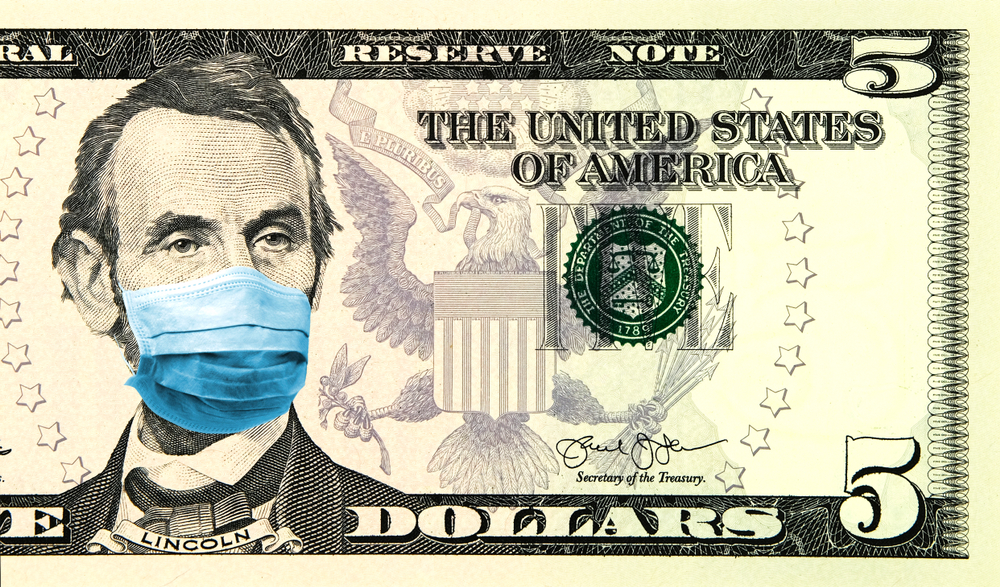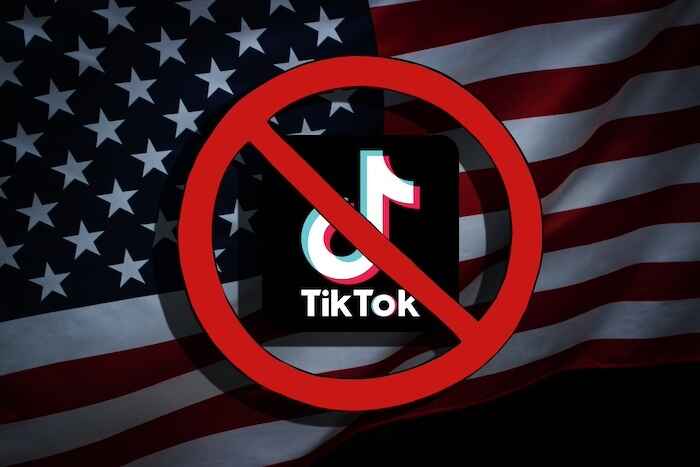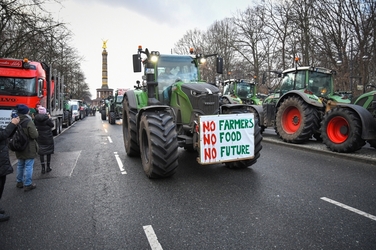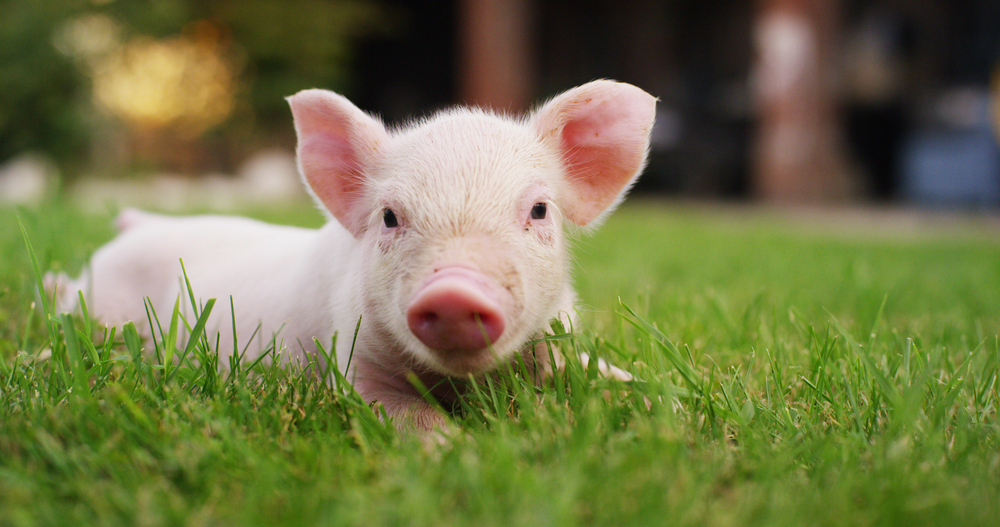Five Coronavirus Trends That Could Change Society for Good
Joel Salatin|March 24, 2020

When something is developing as rapidly as the coronavirus pandemic, almost anything written today will be obsolete by tomorrow.
But as a direct market farmer selling authentic food, I think it’s worth sharing some things I’m seeing already.
For the record, on our farm, you would never know anything was going on. The trees don’t care… The cows don’t care… The blossoms don’t care.
As far as our day-to-day farm activities, you’d never know anything was happening. That’s a calming reality in a crazy world.
I do a lot of speaking around the world and have a schedule planned out a year or more in advance. This week, I had cancellations in Australia for August and in British Columbia for October 24.
If we’re still in this situation on October 24, we will be in a new world.
Here are trend lines developing already that will surely become more entrenched if things continue.
1. Home-Centricity
Working and schooling from home can quickly point out the obsolescence of brick-and-mortar institutions.
Who needs to go to the office? Who needs to go to school?
Perhaps this could be a wake-up call to realize the emperor has no clothes.
The supposed need to build more school buildings and more office buildings in urbanized settings might just look unnecessary. Wouldn’t that be a revelation?
The downside of all this home-centricity is an uptick in domestic violence. Already police departments are seeing families fighting with new vigor since they’re stuck together more hours of the day.
But over time, perhaps families could learn to get along again, like in the days of Laura Ingalls Wilder and The Waltons. Perhaps we’d find friends in our neighborhoods again, rather than just in our online chat rooms.
2. E-Sales
Amazon announced last week it was adding 100,000 new jobs to handle the crush of additional buying on its e-platforms.
Our farm ships food around the country. Last week, those orders increased by 300%.
This could be the final death knell for big-box stores. If FedEx, UPS and Amazon increased merchandise handling fourfold, for example, it would suck the remaining profit out of brick-and-mortar retail interfaces.
When people don’t go out to eat or shop, they cocoon. And that radically changes where and when merchandising occurs.
3. Social Distancing
This is already the buzzword to fight the coronavirus, but the repercussions are profound. Restaurants are suffering the brunt of the anti-gathering mentality.
Interestingly, in our own farm business, we’re collaborating with two meal-preparation outfits that are the next permutation of the ingredient-in-a-box scheme like Blue Apron. Seldom has a food fad showed as much promise, attracted as much venture capital and fizzled as fast as the Blue Apron idea.
It had several problems. You still had to cook… it created mountains of trash from individually wrapped ingredients… and it had a larger shipping expense due to bones, seeds and skins.
The fully prepared meal dispenses with all these negatives at a price point below that of restaurants. And you don’t have to drive anywhere; you can cocoon. Volume preparation in scalable commissaries beats your own kitchen. This iteration seems to have legs and would fundamentally change dining out.
Another thread in this element is fewer conferences, resorts, retreats, conventions and any other mass gatherings. Livestreaming, Zoom conferencing, podcasting and any number of video platforms may well supplant physical presence. That would reduce travel and knock the whole hospitality industry to its knees.
4. Immunity Enhancement
Perhaps for the first time, a majority of Americans are actually thinking about how to build their immune systems. Wellness now has real, practical ramifications; it’s not just something people sit around in focus groups and theorize about.
This drives interesting trajectories. The first is higher-quality food. I welcome interest in this because that’s what I sell.
But we’re also seeing people interested in getting better sleep and focusing on mental well-being, like finding happiness and practicing forgiveness. Nothing focuses people’s attention on health like the fear of catching a highly communicable disease.
5. Larders
Although we don’t use the word much anymore, throughout history this was the domestic food stash. People didn’t expect Costco to stockpile their winter provisions. They practiced laying by.
We still do this in our home. We have mountains of dehydrated, canned and frozen food from our gardens and fields… It’s just the way we live. It’s the way everyone lived not long ago.
Empty supermarket shelves now show the fragility of our food system to handle shocks. And it shows that food and shelter are still No. 1 when people get scared.
If this is a prolonged disturbance, it may force millennials to, like the World War II generation, think about tomorrow more than today.
That means Dave Ramsey is right. A three- to six-month stash of cash for living expenses can build a lot of resilience into your life. At the very time when you need to be unworried and stable in order to have a top-functioning immune system, you don’t need financial stress in your life.
In just two weeks of upheaval, these are the trends rapidly developing. If these become permanent, this disruption will have been worth it. When all the pieces are in place, major cultural changes can happen quickly.
Think about what the reaper did to grain farming. And what the steam engine did to transportation. And what the automobile did to cities. And what the computer did to the typewriter.
Who would have guessed six years ago that oil would be less than $20 a barrel? Anybody?
Who would have predicted in December that we would see 30% of the Dow Jones Industrial Average wiped out before the end of March?
Life, like culture, takes twists and turns. Resiliency requires personal responsibility. And it requires a levelheaded approach to trend lines.
Indeed, we live in interesting times.
Note: Do you agree with Joel’s predictions? What other trends do you think we’ll see as our society adjusts to new normals? Send us your thoughts here.

Joel Salatin
Joel Salatin calls himself a Christian libertarian environmentalist capitalist lunatic farmer. Others who like him call him the most famous farmer in the world, the high priest of the pasture, and the most eclectic thinker from Virginia since Thomas Jefferson. Those who don’t like him call him a bioterrorist, Typhoid Mary, a charlatan, and a starvation advocate. With a room full of debate trophies from high school and college days, 12 published books, and a thriving multigenerational family farm, he draws on a lifetime of food, farming and fantasy to entertain and inspire audiences around the world.





